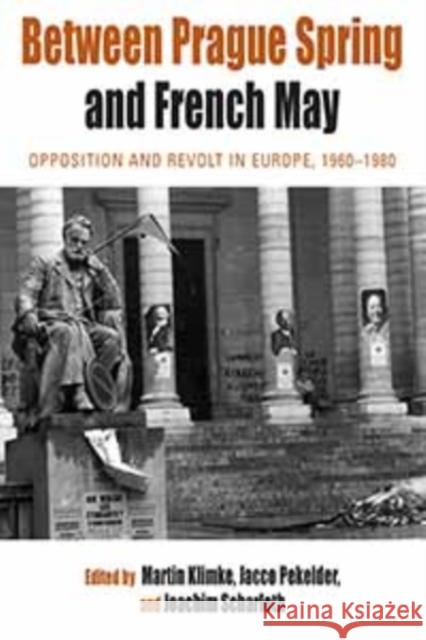Between Prague Spring and French May: Opposition and Revolt in Europe, 1960-1980 » książka
Between Prague Spring and French May: Opposition and Revolt in Europe, 1960-1980
ISBN-13: 9780857451064 / Angielski / Twarda / 2011 / 356 str.
Between Prague Spring and French May: Opposition and Revolt in Europe, 1960-1980
ISBN-13: 9780857451064 / Angielski / Twarda / 2011 / 356 str.
(netto: 483,13 VAT: 5%)
Najniższa cena z 30 dni: 503,14
ok. 22 dni roboczych.
Darmowa dostawa!
"Too often the protests of the 1960s are narrowly confined to the events of one year - 1968 - or to the same familiar set of countries. This welcome book offers broader vistas that includes European countries, big and small, from both sides of the Iron Curtain. In doing so, the authors allow us to transcend worn national narratives and reflect more broadly on how a whole continent was changed by the promise of global change and revolution. This book is thus an important addition for anyone seriously studying Europe in the postwar period." - James C. Kennedy, Author of Building New Babylon: The Netherlands in the 1960s, Professor of Dutch History since the Middle Ages, University of Amsterdam "A wonderful work of collaborative and comparative history, truly international in scope. The authors teach at universities in nine different European nations, plus the United States and Japan. (...) The book will be of immense value to a wide range of specialists and can also be profitably read by anyone who lived through and wants to understand better the excitement, pain, trauma, and occasional triumphs of 1968, looking backward to 1960 and ahead to 1980 to place that extraordinary year in perspective." - David L. Schalk, William R. Kenan, Jr. Professor of History, Emeritus Vassar College Abandoning the usual Cold War-oriented narrative of postwar European protest and opposition movements, this volume offers an innovative, interdisciplinary, and comprehensive perspective on two decades of protest and social upheaval in postwar Europe. It examines the mutual influences and interactions among dissenters in Western Europe, the Warsaw Pact countries, and the nonaligned European countries, and shows how ideological and political developments in the East and West were interconnected through official state or party channels as well as a variety of private and clandestine contacts. Focusing on issues arising from the cross-cultural transfer of ideas, the adjustments to institutional and political frameworks, and the role of the media in staging protest, the volume examines the romanticized attitude of Western activists to violent liberation movements in the Third World and the idolization of imprisoned RAF members as martyrs among left-wing circles across Western Europe.
"Too often the protests of the 1960s are narrowly confined to the events of one year - 1968 - or to the same familiar set of countries. This welcome book offers broader vistas that includes European countries, big and small, from both sides of the Iron Curtain. In doing so, the authors allow us to transcend worn national narratives and reflect more broadly on how a whole continent was changed by the promise of global change and revolution. This book is thus an important addition for anyone seriously studying Europe in the postwar period." · James C. Kennedy, Author of Building New Babylon: The Netherlands in the 1960s, Professor of Dutch History since the Middle Ages, University of Amsterdam"A wonderful work of collaborative and comparative history, truly international in scope. The authors teach at universities in nine different European nations, plus the United States and Japan. (...) The book will be of immense value to a wide range of specialists and can also be profitably read by anyone who lived through and wants to understand better the excitement, pain, trauma, and occasional triumphs of 1968, looking backward to 1960 and ahead to 1980 to place that extraordinary year in perspective." · David L. Schalk, William R. Kenan, Jr. Professor of History, Emeritus Vassar CollegeAbandoning the usual Cold War-oriented narrative of postwar European protest and opposition movements, this volume offers an innovative, interdisciplinary, and comprehensive perspective on two decades of protest and social upheaval in postwar Europe. It examines the mutual influences and interactions among dissenters in Western Europe, the Warsaw Pact countries, and the nonaligned European countries, and shows how ideological and political developments in the East and West were interconnected through official state or party channels as well as a variety of private and clandestine contacts. Focusing on issues arising from the cross-cultural transfer of ideas, the adjustments to institutional and political frameworks, and the role of the media in staging protest, the volume examines the romanticized attitude of Western activists to violent liberation movements in the Third World and the idolization of imprisoned RAF members as martyrs among left-wing circles across Western Europe.











